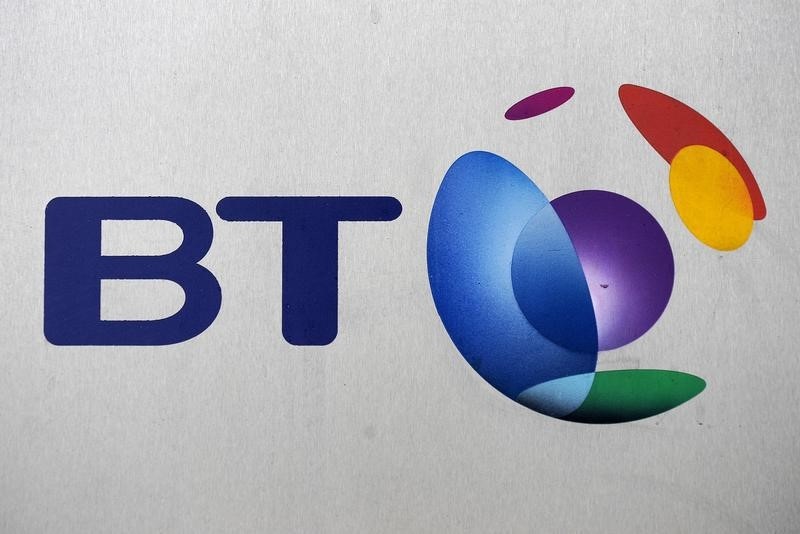By Paul Sandle and Kate Holton
LONDON (Reuters) - Britain's telecoms regulator is seriously considering a break up of dominant provider BT (L:BT), after rivals accused it of abusing its market position and failing to invest in the broadband networks they rely on.
Ofcom floated the idea of a forced separation of BT's Openreach network after rivals Sky (L:SKYB) and TalkTalk (L:TALK) stepped up pressure for the national copper and fibre broadband networks to be run by an independent operator.
Ofcom Chief Executive Sharon White said a split remained "under serious consideration", after the regulator earlier on Thursday had downplayed the option, saying the status quo had worked for 10 years and a change would be disruptive.
"If we were going to rule it out, we would have ruled it out today," she said when asked if analysts were correct to say she was moving towards less radical reforms.
In an update on its industry review, Ofcom said the incentive for BT to discriminate against competing providers could be limited by regulation but not removed entirely.
However, it said the current system whereby the 169-year-old BT operates Openreach as a separate unit, providing network access to rivals, had delivered choice, quality and value for customers over many years.
And it would also be an "intrusive and complex intervention both for BT and the rest of the industry" to split it up.
Analysts at Citi said Ofcom's language seemed to kill off the option of complete separation.
BT defended Openreach's record. It said customers of all providers had enjoyed higher speeds and lower prices due to its investment in a new fibre network, which would not have been possible if BT had been split in two a decade ago following a previous industry review.
"Ofcom have overseen a regime that has balanced investment with competition and we hope they will once again put the needs of the UK and its consumers ahead of those who have tried to keep the UK in the digital dark ages," it said.
It added that its "ambitious plans for ultrafast broadband also depended on BT remaining intact".
RADICAL RE-THINK
White said BT's commitment to invest was a "big factor" in decided how the company was structured.
The regulator also said before taking the drastic measure of splitting up BT, it would need to be sure any lesser proposals, such as using new or existing market powers, had failed.
Shares in BT were flat.
BT's main rivals said they welcomed the focus on Openreach, and called for radical thinking.
"For too long, consumers and businesses have been suffering because the existing structure does not deliver the innovation, competition and quality of service that they need," said Mai Fyfield, Sky's chief strategy officer.
TalkTalk has said the current structure was not fit for purpose, and BT's proposed acquisition of leading mobile operator EE would only increase its dominance.

Chief Executive Dido Harding said it was "tremendous arrogance" for a monopoly provider to suggest they were the only people investing in ultrafast broadband. "They are patently not," she said.